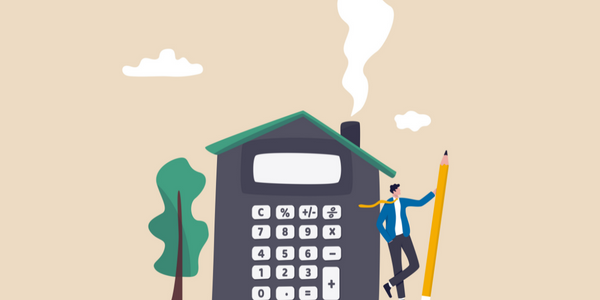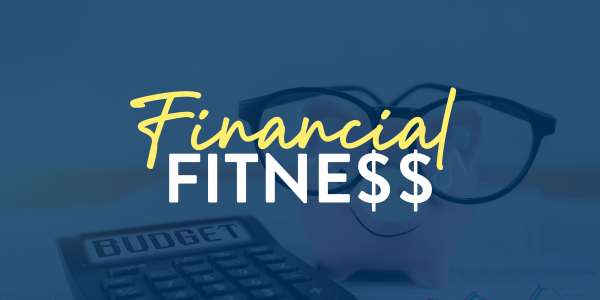
There are so many options out there that promise to help you build wealth. High-interest rate savings accounts can make a few drops in the bucket, but not many. The stock market is certainly a vehicle for making money, but you have to know what you’re doing, what you’re buying, and when to get out. Retirement accounts can be a great way to accrue money over time, but 65 is a long way off for some people. Then there are cryptocurrencies. A year ago, it seemed the sky was the limit for these virtual coins. This year, it’s a whole different story.

So, where does that leave the average family who doesn’t have a ton of disposable cash to invest but is still eager to build wealth over time? Real estate. That’s right, millions of Americans have figured out how to build wealth through real estate investing.
Renting vs. Buying
The first thing you should consider when thinking about whether to invest in real estate is how much money the average renter (you!) is paying for a temporary living situation. Depending on the area and type of unit, a renter could be throwing away anywhere from $10,000 to more than $30,000 every . . . single . . . year.
That money goes straight into the landlords’ pockets. It’s funding their bottom lines because they’ve figured out how to build wealth through real estate investing—by having someone else pay the mortgage!
The upfront costs associated with buying a home can initially make it seem more expensive than renting (though not always!), but this is an investment in your financial future. You build equity. You reinvest in your asset every month through a mortgage. You watch your home appreciate.
Don’t believe us? Let history be your guide. The price of an average U.S. home in 2000 was $126,000. Today, it’s nearly $260,000, according to a recent analysis by the Visual Capitalist. This is a 106% increase in two decades. And let’s not forget, the Great Recession occurred during this period as well—making these numbers even more impressive!
Predictability
Now, no investment is risk-free, but historical data shows that homes will appreciate over time, minus a few sporadic dips. Here’s the thing, though. The housing market, stock market, and even cryptomarket can go up and down. What doesn’t go up and down when you own a home is your monthly payment.
That’s right. If you’ve got a 15- or 30-year fixed-rate mortgage, your payment will never change over time (unless you refinance). A landlord can raise your rent or—even worse—choose not to renew your lease when the rental market is at a high like it is now. Little “surprises” like these can mean major stress when you’ve got to move, especially if rental rates are through the roof and vacancies are scant.
Do you suck it up and pay $150 more a month than you’re paying now? Do you pick a less desirable area or downgrade your building and/or amenities? Do you move back in with your parents?
Take all this stress off the table by knowing that regardless of what else happens in the world, your monthly housing costs are fixed.
Inflation
Investment experts always talk about “hedging against inflation,” but what does that mean, exactly? They’re essentially referring to assets like gold, commodities, and stocks that are likely to achieve a yield that would keep pace with—or exceed—the rate of inflation.
As we said before, all investments carry some risk, and no rate of return is guaranteed. The same goes for real estate, yes, but as a long-term investment, your home isn’t likely to take a huge hit during an inflationary period. You know what is likely to take a hit, though? The price of rent.
That’s right. Landlords are likely to pass on any additional costs they bear, such as cleaning, maintenance, renovations, and repairs, to the tenant. You, on the other hand, may find that you’re paying more for gas, groceries, hotel rooms, flights, and everything else under the sun, but you won’t be paying more for your home. As we mentioned before, that cost is fixed.
Here’s something else you might not have thought of. The rising cost of goods may also apply to your home. Take a look at the current market, where inflation is at work and home values are through the roof—and growing!!
Supplemental Income
It really sounds like those landlords are making out, huh? They just sit back, collect the rent, and fund their long-term investments. While being a landlord may require a bit more work than that, it’s not a bad gig if you’re looking to earn extra money on a vacant space.
Landlords certainly know how to build wealth through real estate investing. Depending on your region’s rules and regulations, you can rent out your entire home, a room within the home, or even an accessory dwelling unit (ADU) for either the long- or short-term.
Fund your vacation by renting your home out while you’re away. Recoup the cost of that ADU by letting a college student occupy it for a year or two. Save up enough money to buy another rental property by leasing your existing property year-round. The possibilities are endless when you own a home.
Available Equity
Putting the landlord hat aside, owning a home also means you have equity to tap into. Those who know how to build wealth through real estate investing also know they can access cash quickly and easily through a home equity loan, cash-out refinance, or HELOC.
These loans and revolving lines of credit can help you reinvest in your property through a home renovation, repair, or funding the down payment on a new home. The beauty of these products, however, is that they don’t have to be used on home-related expenses.
You can use the equity in your home to fund whatever you like. Take advantage of that stock tip. Make up for lost time by maxing out your retirement account contribution. Pay for your child’s college tuition. Cover a medical bill. Buy a boat. Rent out a zoo. It doesn’t matter what you do with this money—you earned it through solid, responsible investing. It’s yours to do with it what you like.
Those who know how to build wealth through real estate investing have many doors open to them, which can often lead to even more investment opportunities. After all, wealth certainly can’t buy happiness, but it can buy choices, and it can open doors to financial stability through options that may not be available otherwise.
Talk to one of our APM loan advisors today to hear even more about how to build wealth through real estate investing. We’re happy to get you started.








